In part 2 of my series, we’re going to discuss some evidence-based natural remedies to help you with bloating.

In case you missed Part 1, I went over some of the most common causes of bloating. In this edition of the bloating series, we’re going to talk about what to do about it and natural remedies for bloating.
Before we start, I want to remind you that the cure will depend on the cause. This means that a beneficial food or supplement for someone with constipation may actually cause bloating for someone with SIBO, and vice versa. In some cases, the solution can be as simple as removing or limiting a food, as in the case of a food intolerance. The thing about functional digestive nutrition is that there’s rarely a black and white straight solution. It often involves a lot of trial and error, and it might take a cocktail of supplements, foods or lifestyle changes to experience relief for you.
A lot of “remedies” are also not super well researched, so I always recommend working with your dietitian and doctor to find a solution thats unique to you. I myself consulted with not one, but FOUR of my GI RD colleagues to get their clinical insight. So a big thank you to Dasha Agoulnik, Amber Gourley, Caitlin Self and Lacey Dunn for their help.
We’re going to break this video down into three sections: foods, supplements and lifestyle.
Foods To Relieve Bloating
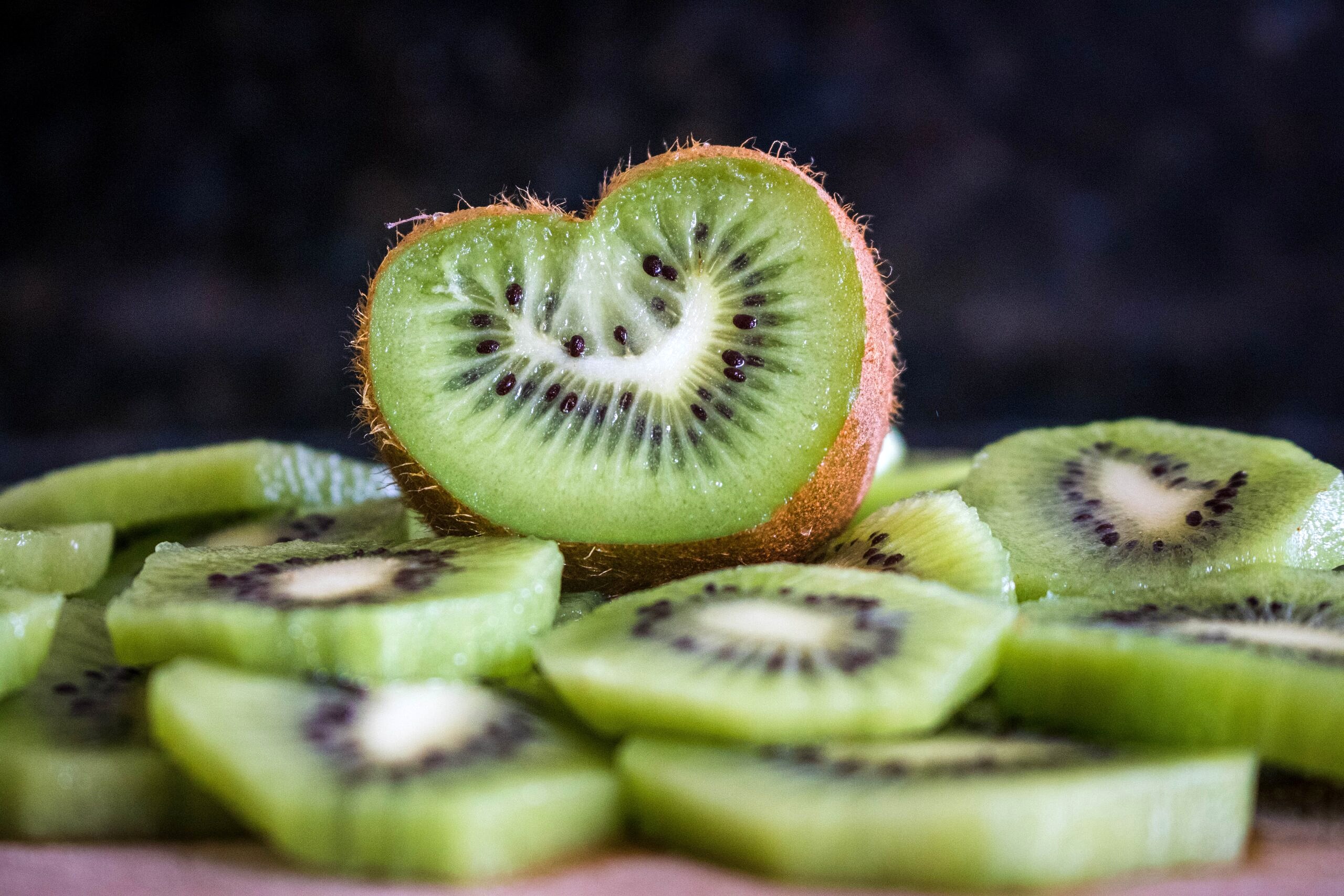
Kiwi
We see a ton of digestive enzyme supplements on the market but there are also foods that naturally contain digestive enzymes to help breakdown food into nutrients that your body can then absorb. For example, papaya contains the enzyme papain, pineapple contains bromelain, and kiwi contains actinidin, all of which work to break down protein into amino acids.
Kiwi specifically is one of the best natural remedies for bloating. While research suggests that prunes, psyllium, and kiwi all helped reduce constipation, only the mighty kiwi helped reduce bloating symptoms. And it only took two kiwi a day!
Ginger
Ginger has prokinetic properties that helps to stimulate stomach emptying and digestive motility. It also contains the proteolytic enzyme zingibain, so it’s kind of a double threat. I want to note that the research on ginger has largely been done on concentrated ginger capsules, so you would likely need to consume a lot of fresh ginger to see the same clinical impact. But if you enjoy ginger, I don’t see the harm in incorporating it regularly into your daily diet.
Peppermint Oil
Peppermint is my personal favourite, and it’s something I personally use if I feel particularly bloated after a high FODMAP meal. Peppermint works as an anti-spasmodic that helps to sooth and calm the GI tract. Concentrated peppermint oil, in particular, has been shown to help treat digestive symptoms like bloating and abdominal cramping. But it can exacerbate heartburn, so a note to avoid it if you have GERD.
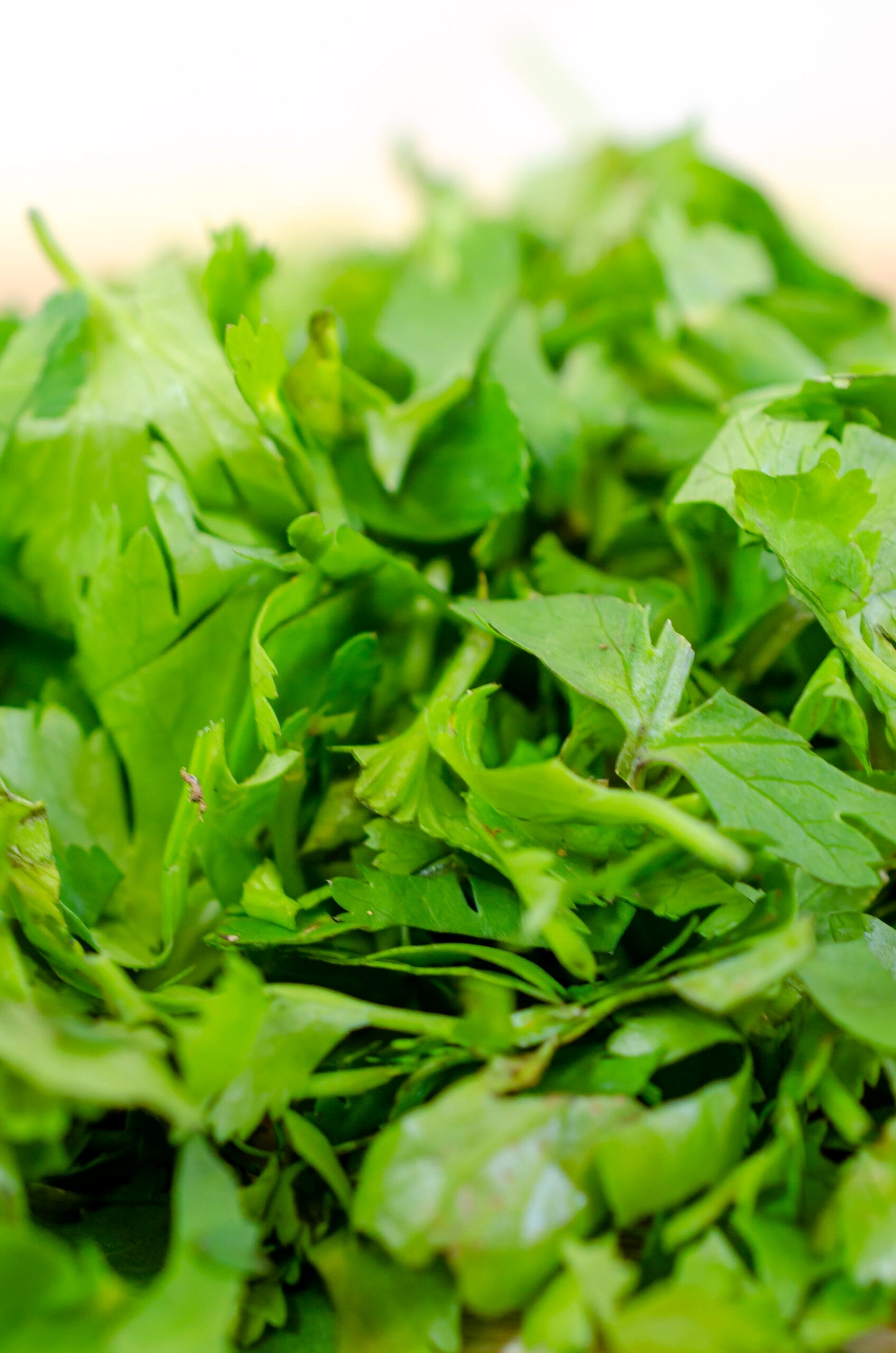
Bitter Foods
So pretty much all of the dietitians I spoke to mentioned using bitter foods like arugula, dandelion, grapefruit as natural remedies for bloating. Bitter foods, like bitter supplements, may help stimulate the bitter receptors of the gallbladder, pancreas and stomach to help naturally increase bile flow, digestive enzymes and stomach acids. They’re also delicious and in season this time of year, so they are one of my favourite foods.
Fennel Seeds
Not only a good source of fibre, but fennel seeds have antibacterial, anti-fungal and anti-inflammatory properties which can help improve the microbiome to reduce fermentation that causes gas. The anti-inflammatory anethole compound in fennel seeds may also help relax the intestines to allow for better bowel motility, and therefore gas.
Super Sprinkles (AKA Hemp Hearts, Chia & Flax)
You guys know we love hemp hearts in my house, and here’s another reason why. These tiny sprinkles are packed with fibre, but they’re nutrition is quite concentrated so they don’t add a ton of bulk. They also are low fodmap at typical portions so they’re appropriate even for sensitive tummies.
What About Probiotic Rich Foods?
So this one is really hit and miss, and I don’t want to recommend it to the masses as something to specifically focus on if you don’t know the root cause of your bloating.
In terms of natural remedies for bloating, some studies have shown that foods rich in probiotics may be helpful in certain scenarios for reducing bloating and gas. In addition, sauerkraut, miso, kimchi, and kefir contain naturally occurring digestive enzymes, such as proteases, amylase, and lipase. So for example, one study found that the lactase enzyme found in kefir helped improve lactose digestion in those with lactose intolerance.
Having said that, if your bloating is the result of an overgrowth or histamine related, you will want to be very cautious about adding bacteria, even if its good bacteria. So this is where we get into strain specific probiotic recommendations for treatment, which is hard to manipulate when we’re talking about food.
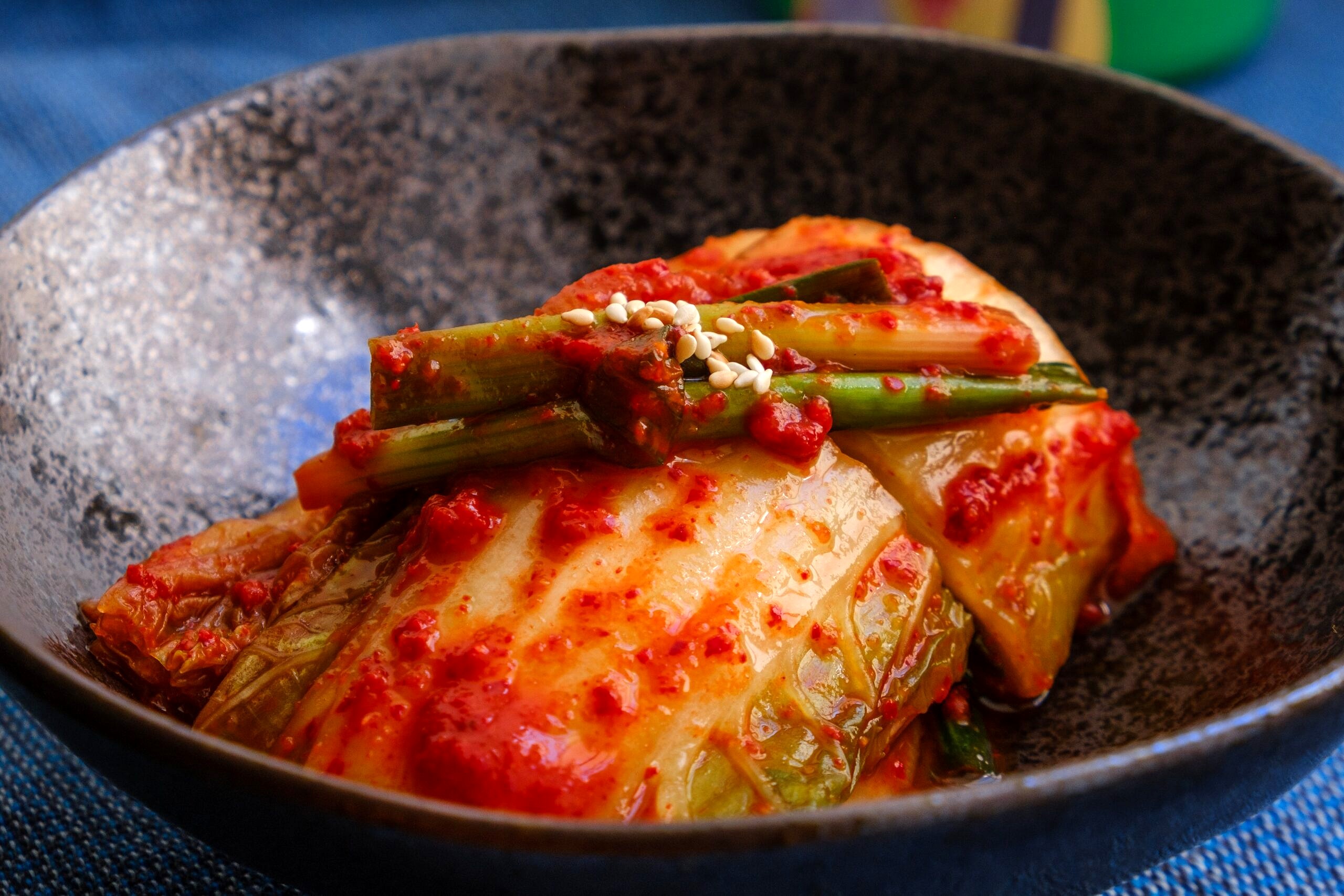
Supplements To Relieve Bloating
Just like food, the right supplement for your bloating will strongly depend on the cause.
Digestive Enzymes
If we’re dealing with a food intolerance or a sensitivity to specific FODMAP foods, then the best course of action would be to limit these foods in your diet and when you cant limit them, to use over-the-counter digestive enzyme supplements like lactaid or alpha-galactosidase (aka beano). These two digestive enzymes are the best supported by evidence for lactose and alpha-galactosidase intolerances, respectively. Even still, most folks find that taking a supplement is really an adjunct therapy to help with tolerance, they don’t really fix the problem, and they also don’t usually provide absolute relief.
As for other digestive enzyme products out there, there are, admittedly so many options, most of which have limited evidence to support. That doesn’t mean they don’t work, and theoretically most should. For example, we do have a study on papaya supplements that found that it helped reduce constipation and bloating and early research suggesting that concentrated doses of the bromelain enzyme in pineapple can serve as a digestive aid. It’s all promising, but more human research is needed to confirm these findings.
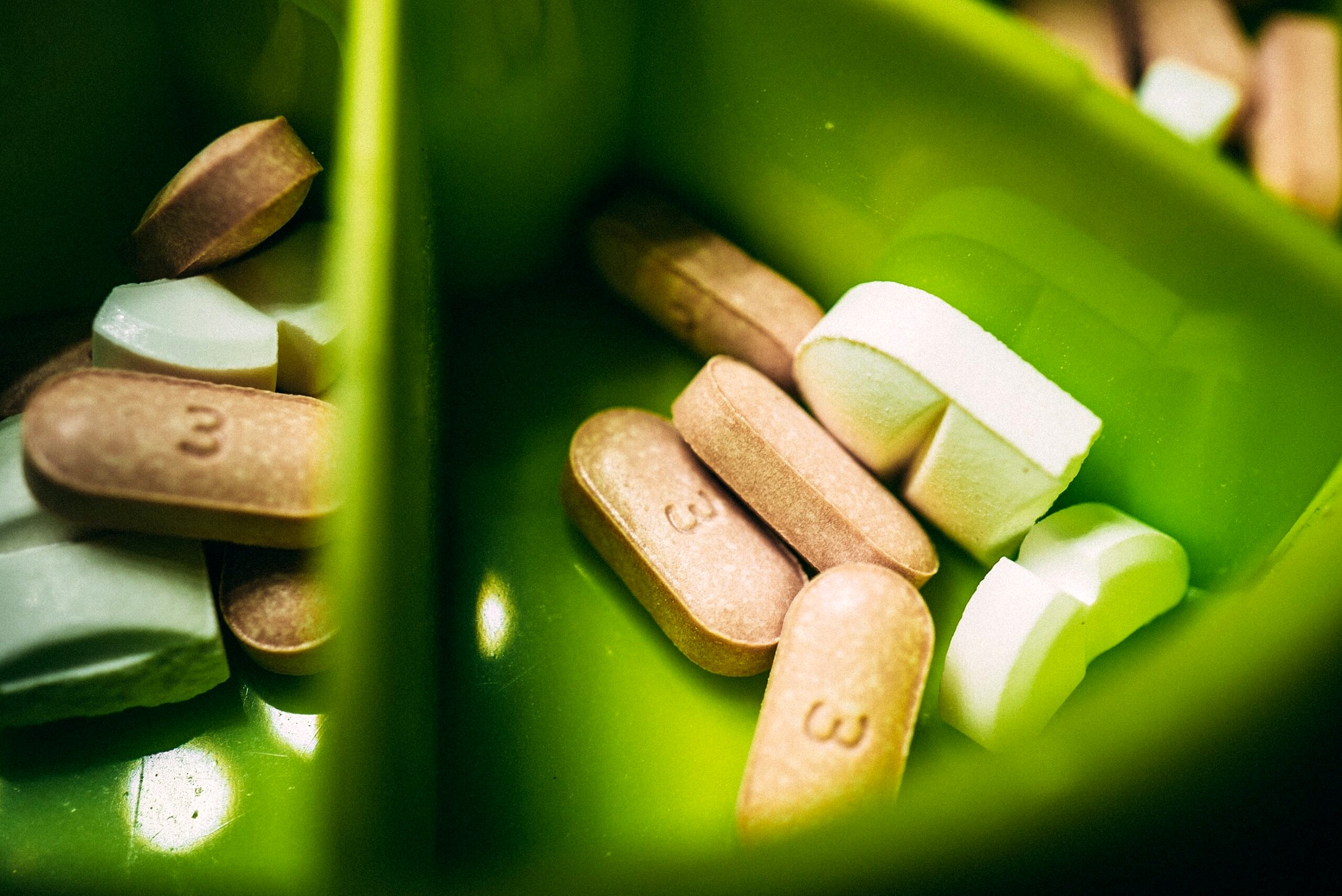
We also know that folks with pancreatic insufficiency are given prescription grade digestive enzymes like proteases, amylase, and lipase so there is a clinical indication for them. I have spoken to dozens of my colleagues who specialize in this area of practice, who have no skin in the game when it comes to incentive for suggesting enzymes. They agree that while the research is so behind, their clinical experience suggests they often do help. So again, its important to work with a dietitian to get a reputable third party tested product and ideally, to respond to evidence from something like a GI MAP stool test to determine what enzymes you might actually need.
Ox Bile
Ox Bile is often recommended as a supplement for folks who are experiencing severe bloating after consuming fats, to aid the concern that they’re not producing enough bile acids to break those fats down. This is a common suggestion, specifically with SIBO, since one of the purported causes of SIBO is low bile flow, so adding bile can theoretically help. Unfortunately, like most things in the digestive world, we mainly have animal research to go on, which doesn’t mean it doesn’t help, but we just don’t have great evidence yet. It’s also possible to create bile acid diarrhea if you take too much so as always, make sure you’re working with a dietitian to determine if its right for you.
Betaine HCL
Low stomach acid can also trigger bloating due to poor digestion and then fermentation of food. However, research suggests that certain natural remedies for bloating, like Betaine HCL, may help mediate this by helping to increase stomach acid. Like Ox Bile, it’s not without risk if you don’t know the root cause of your bloating. So for example, folks with H Pylori may find that Betaine HCL can cause the H Pylori to go further into the stomach, which ultimately creates a risk of ulceration. So best again to work with your doctor to rule that out.
Iberogast
Iberogast is a tincture made up of ingredients like peppermint, camomile, liquorice root, and lemon balm that has been found to be effective in clinical trials. The research suggests it may help reduce gas formation, regulate muscle contractions along the digestive tract, and also improve digestive secretion, which can collectively help to provide some relief. This is personally a favourite of mine and I use it with every meal.
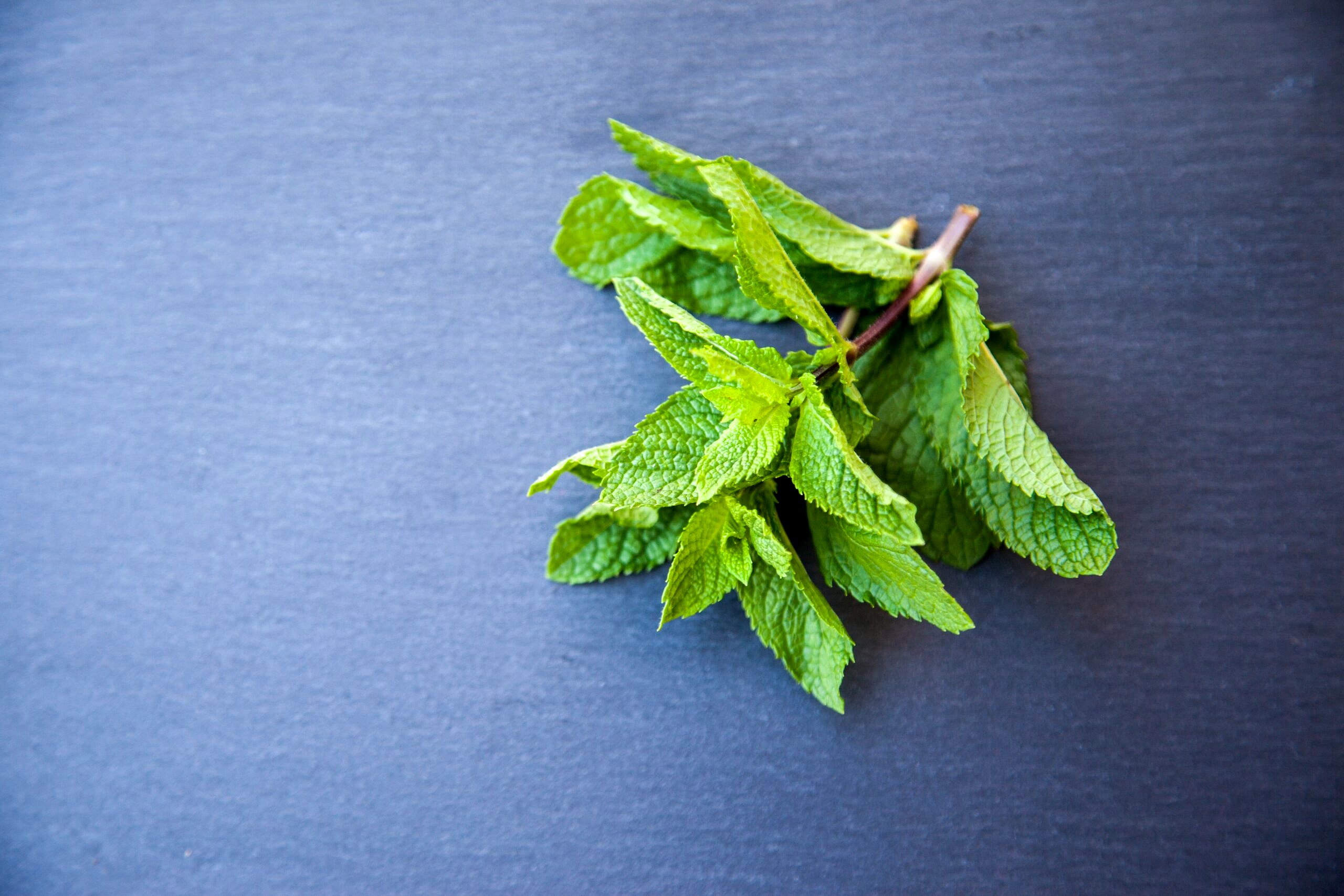
Fibre Supplements
So we talked about constipation or slow motility being one of the potential causes of bloating, in which case a fibre supplement may help. Partially hydrolyzed guar gum (otherwise known as PHGG) is a prebiotic fibre that has been shown to improve symptoms of constipation in individuals with IBS by boosting bowel frequency without excess fermentation. Similarly, psyllium fibre is another great option for improving constipation and digestion, and has been shown to improve symptoms of IBS including bloating.
However, just like fibre from food, there’s a real goldilocks effect with fibre – both too much or too little can exacerbate bloating. So always work with a dietitian before starting a fibre supplement and slowly work your way up in dose.
Probiotic Supplements
Like with probiotic foods, the world of probiotics is highly strain and individual specific. It can be a bit like throwing fuel on the fire if you take the wrong strain, but it can be worth getting it right to help heal the immune system to prevent further pathenogenic overgrowth and dysbiosis. When it comes to the general population, two systematic reviews suggest that multi-strain probiotic supplements are most effective at supporting IBS symptoms compared to single strains. So we usually see combinations of Lactobacillus and Bifidobacterium strains for generalized IBS-like symptoms.
However, depending on the cause of your bloating, S. Boularddi or a spore-based probiotic like megaspore which is a combination of bacillus stains may be a “safer” options for folks with bacterial overgrowth conditions.
I also found a ton of research on Bacillus Coagulans and Bacillus Subtilis, which are two spore forming strains that are clinically proven to improve IBS symptoms and other digestive issues like bloating, burping, and gut motility. These are the strains I chose to use in my probiotic protein powder, neue theory, because they’re also low risk for folks with a SIBO history.
Lifestyle Factors
Eating Behaviours
How you eat is often just as important as what you eat when it comes to bloating. Focusing on slow chewing, replacing carbonated drinks with regular water, and mindful eating can all help reduce swallowing too much air.
Vagus Nerve Stimulation
The vagus nerve is one of the main components of the parasympathetic nervous system which oversees digestion via the brain gut axis. We have research to suggest that activities that stimulate this axis like singing, humming, laughing, deep breathing, and gargling with water can all help improve digestion. We also know that any activities that are stress reducing can help improve digestion, so I would focus on self-care on days you feel particularly uncomfortable. I love the Nerva app for some great digestion related meditations.
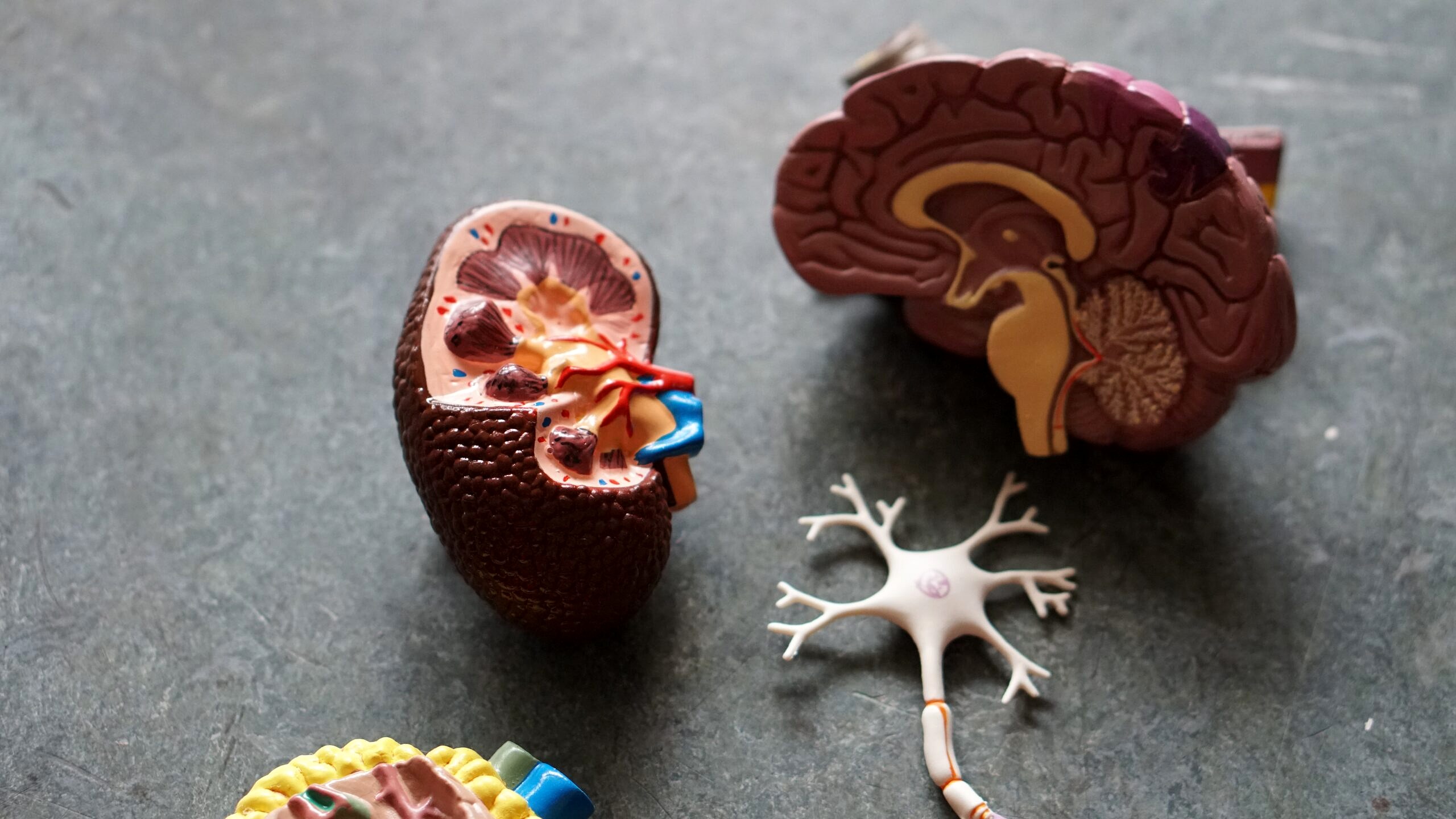
Movement
I know when we have really bad abdominal pain from bloating, the last thing we want to do is move. But research suggests that gentle exercise like a light walk or yoga poses that target the abdominal area can help get the bowels moving and release the build up of gas.
Massage and Pressure
Similarly to gentle exercise, abdominal massage can help to relax your stomach muscles and release trapped gas while also helping to stimulate digestion. You can gently massage your stomach yourself or even just lay on your stomach to help move things along.

The Bottom Line
I really tried to make this topic as simple as it could be. If you’re following my SIBO journey on YouTube, you know that digestion is anything but simple. Its not a black and white topic, there’s no expensive product you can buy to miraculously cure everything, and the fact that we are so behind on the research doesn’t make getting effective quality care very easy. Unfortunately, the gut is complex and for most people curing yourself of bloating isn’t going to be fast, easy, or painless. I strongly suggest working with a dietitian who specializes in digestive health to help you navigate this snake oil filled world.
More Blog Posts You Might Like:
If you liked this blog post discussing natural remedies for bloating, then you might also enjoy more blog posts on gut health:
- How to Stop Stomach Cramps and Pain
- Vegan Diet and Bloating | How to Improve Gut Health
- Anti Candida Diet – Helpful or Hype (According to a Dietitian)
- Evidence on the Best Probiotics for Weight Loss, IBS, Constipation & More
- Tips to Avoid Holiday Heartburn and Indigestion
Have you struggled with bloating? What natural remedies for bloating have worked for you?

Abbey Sharp is a Registered Dietitian (RD), regulated by the Ontario College of Dietitians. She is a mom, YouTuber, Blogger, award winning cookbook author, media coach specializing in food and nutrition influencers, and a frequent contributor to national publications like Healthline and on national broadcast TV shows.

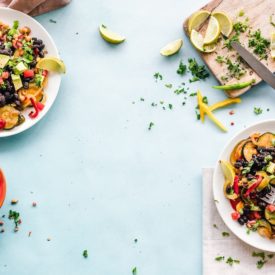

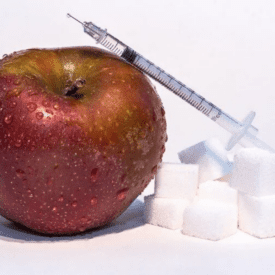

Leave a Comment